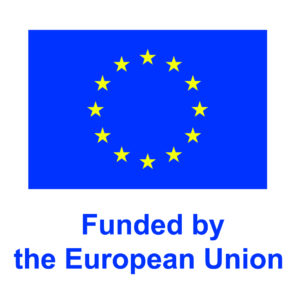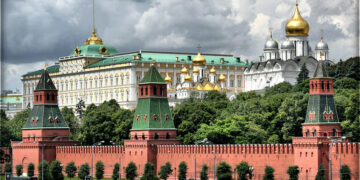How to communicate not only in times of war – Public Discussion

The war in Ukraine has resulted in a dramatic surge in energy prices, increasing inflation, and security threats across Europe. Alongside these challenges, disinformation and war propaganda are also taking advantage of social fear and uncertainty, trying to undermine confidence in state institutions and the Czech Republic's position in Euro-Atlantic structures. Strategic communication is an effective tool for countering these information threats, not only in times of war but also in times of peace. It can prevent radicalisation, the spread of manipulative narratives and strengthen trust in the state and its democratic direction. Without it, a dangerous information vacuum is created, which can be easily exploited by both domestic and foreign forces.
On 19 April 2023, we organised a public debate on strategic communication and its importance for building trust between the state and the citizen, and the appropriate tools for combating disinformation. The debate also focused on which proven methods and practices the Czech Republic can learn from neighbouring Slovakia and other successful international practices.
The panel of experts included Pavel Havlíček, analyst at the Association for International Affairs, Denisa Hejlová, researcher and educator at Charles University, Matej Kandrík, executive director of the Slovak ADAPT Institute, and Khanh Ly Tran, strategic communications advisor at the Ministry of Defence. They presented how strategic communication works and identified and analysed the key actors of strategic communication in the Czech Republic, including NGOs, public media, and academic institutions. However, the panellists emphasized that the state remains the primary source of information for citizens during crisis situations, highlighting the need for people to be informed about the state’s actions.
Denisa Hejlová explained the differences between strategic communication, propaganda, and government PR. Among them, the key aspects are freedom of speech and democratic values. However, it is necessary to ensure the apolitical nature of strategic communication, just as pre-
election debates are closely monitored. During the debate, speakers also discussed the current government concept of strategic communication and its successes and limitations. According to them, successful examples included campaigns such as inflation umbrella and unified communication in support of Ukraine. However, there are still several questions remaining, such as the non-approval of changes to the state’s strategic communication concept or the lack of involvement of certain departments, such as the Ministry of Finance. They also explored the lessons that the Czech Republic has learned about state communication during the pandemic and the war in Ukraine, while discussing the ideal direction for future strategic communication. According to them, active dialogue, and active listening on the part of the government are key.
The situation in the Czech Republic was presented in contrast to the situation in neighbouring Slovakia and the development of strategic communication there. Matej Kandrík highlighted the mistrust of Slovaks towards the state and institutions, as well as attacks on the media by politicians. According to him, this undermines and complicates any communication, benefiting more radical extremist social and political currents. Despite this, the Slovak approach to strategic communication has not yet been influenced by turbulent political debates.
One of the topics also addressed was the issue of combating disinformation and hybrid threats. Khanh Ly Tranova explained the need for the involvement of additional tools, particularly debunking and appropriate media education, to counter these threats. The speakers also highlighted successful stories from countries such as Finland, Estonia, and the Baltic states, where society does not tend to succumb to disinformation. Conversely, Slovakia and Bulgaria face significant problems with the disinformation landscape. Lastly, the participants also touched upon the limits of communication regarding European topics.
The debate was organized by the Association for International Affairs as part of the project Strengthening the Resilience of Czech, Slovak, and Polish Societies Prior to the 2024 European Parliament elections with support from the European Education and Culture Executive Agency (EACEA) of the European Commission. The project is funded by the European Union. Views and opinions expressed are however those of the author(s) only and do not necessarily reflect those of the European Union or the European Education and Culture Executive Agency (EACEA). Neither the European Union nor EACEA can be held responsible for them.
Funded by the European Union. The views and opinions expressed represent the views and opinions of the authors and do not necessarily reflect the views and opinions of the European Union or the European Commission. Neither the European Union nor the European Commission can be held responsible.







